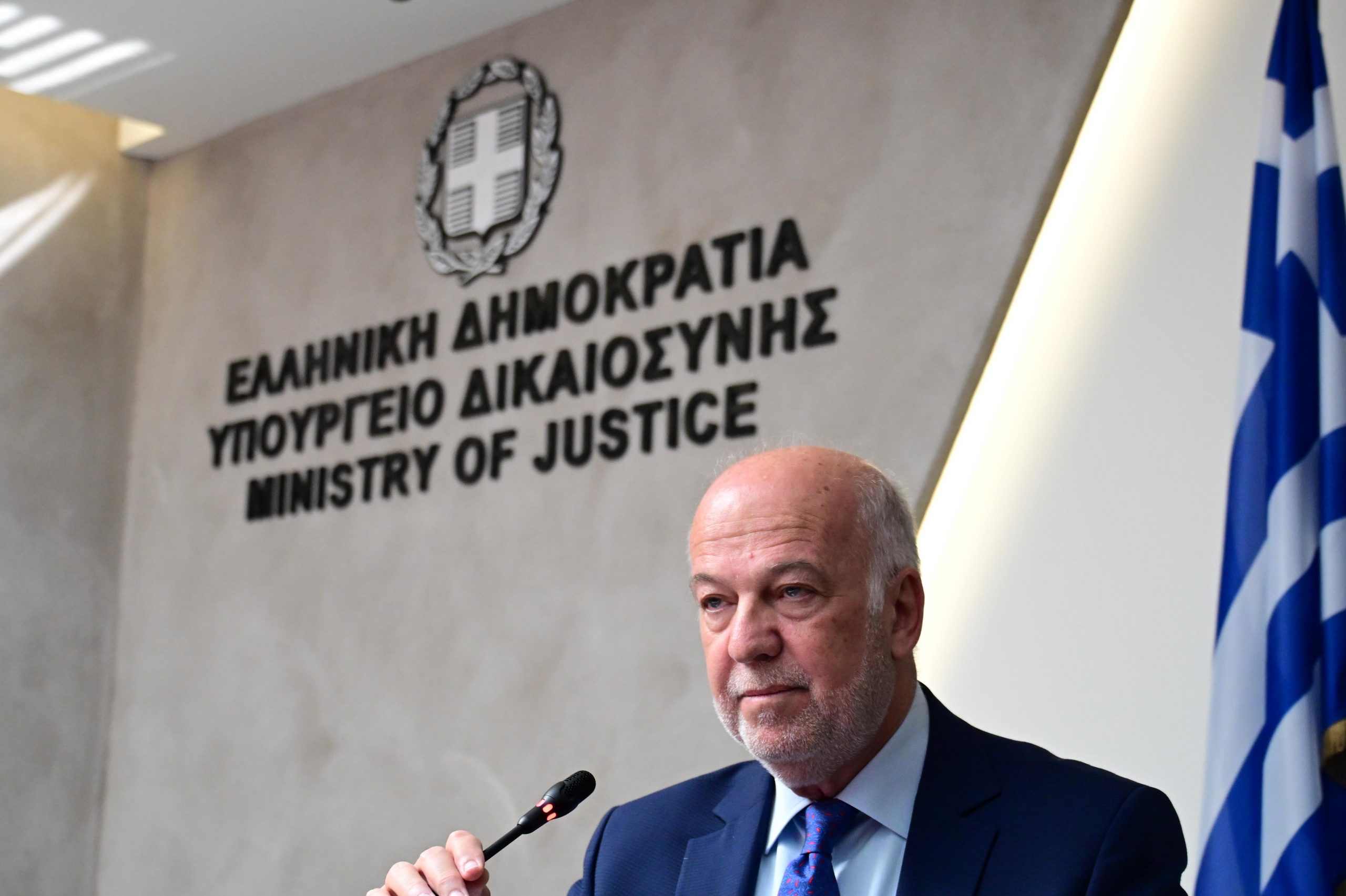Greek Justice Minister Giorgos Floridis on Friday defended an addendum to a 22-year-old law extending a ban on the broadcast of trials to the Internet. The current law, passed in 2002, essentially prohibits televised trials.
Floridis, one of the higher profile ministers in the Mitsotakis government and a former minister with previous PASOK governments, said the expanded law’s intent is to protect defendants.
Speaking on a morning current affairs program on SKAI TV, he also took umbrage with criticism from main opposition SYRIZA party over the decision, saying MPs of the latter had actually voted in favor of extending the broadcast ban to the Internet.
“Much ado about nothing. The way they’ve become inside SYRIZA they can’t even communicate (with each other),” Floridis scathingly said. He added that this legal provision does not affect so-called “observatories” that follow and monitor high-profile proceedings, such as the high-profile Golden Dawn trial.
Floridis: SYRIZA law freed hardcore criminals
In taking yet another shot at the leftist SYRIZA government (2015-2019), Floridis said a hastily passed law revising the penal code in the Tsipras government’s waning days in July 2019 caused significant damage to the country’s judiciary.
“The Paraskevopoulos law’s provisions freed all of the hardcore criminals,” he charged, using the name of the justice minister at the time, under whose tenure a more lenient criminal code was compiled and implemented – often-times benefiting jailed inmates convicted of violent felonies.
“What we changed is that members of the judicial council, in addition to the law’s clauses, can now decide on whether to release an individual from prison based on the person they have in front of them,” he said.
In playing up the impact of the new – and toughened – criminal code so far, Floridis said that as of May 1 a period of impunity has ended in the country.
“Its (revised criminal code) purpose is to make those who break the law realize that they’ll go to jail … a system succeeds when it creates a certainty that you will go to jail,” he said.
Novartis case
Asked about the contentious Novartis case, where a lengthy, much-publicized, politicized and ultimately fruitless investigation by the former chief anti-corruption prosecutor failed to deliver even one indictment or charge before any court, Floridis noted that under the new criminal code a public prosecutor can evaluate the status of protection allocated to so-called “protected witnesses”, and decide if it’s valid or not.
He was responding to an explosive claim by the head of the Parliament-represented Elliniki Lysi (Greek Solution) party, Kyriakos Velopoulos, who charged that one of his former deputies received 30 million USD as the attorney of the three Novartis case “protected witnesses”.
Months of the testimony by the latter to then high-ranking prosecutor Eleni Touloupaki and her associates implicated 10 top political figures as recipients of bribes and kickbacks by Novartis’ Greek subsidiary – including care-taker prime minister serving for a very brief period. All of the latter were deemed as opponents or perceived rivals of the then SYRIZA government.
After years of investigation, punctuated by illegal leaks of witnesses’ testimony to select journalists and pro-SYRIZA media, Touloupaki was forced to shelve all 10 investigations of the political figures.
Meanwhile, an investigation by the US Justice Department yielded a massive 345-million-dollar fine against Novartis AG for a “…scheme to bribe employees of state-owned and state-controlled hospitals and clinics in Greece and to falsely record improper payments relating to the corrupt scheme and similar conduct”.
Touloupaki and her associates failed to bring even one indictment against an employee of state-owned and state-controlled hospitals and clinics in Greece.
The resurfaced Novartis case also comes in light of this week’s statements by former PM Antonis Samaras and former health minister Andreas Loverdos demanding that the identities of the three “protected witnesses” in Greece be publicized.



